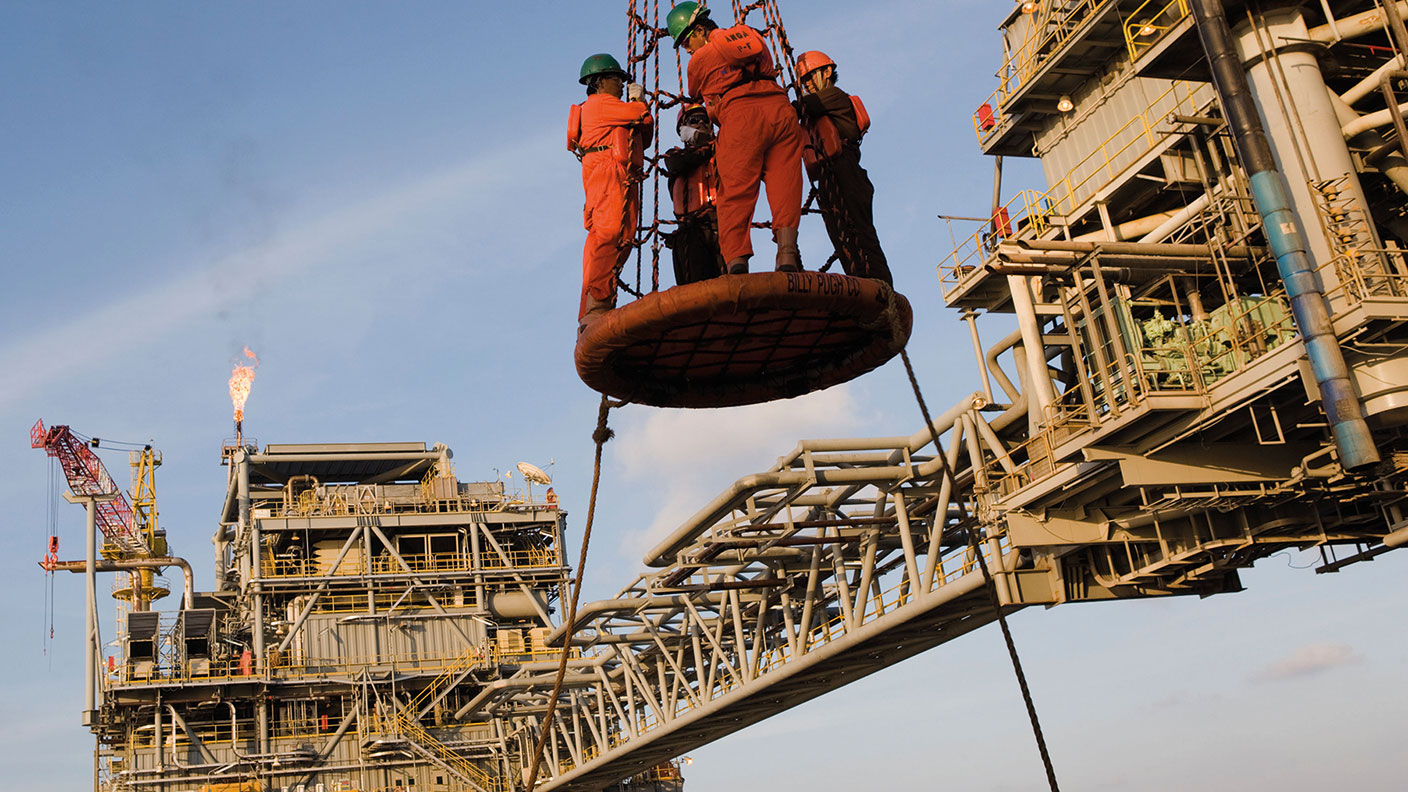The world is bracing itself for a stagflationary shock
The world is heading for a period of stagflation – falling growth and rising prices - a particularly miserable type of recession.

Get the latest financial news, insights and expert analysis from our award-winning MoneyWeek team, to help you understand what really matters when it comes to your finances.
You are now subscribed
Your newsletter sign-up was successful
Want to add more newsletters?

Twice daily
MoneyWeek
Get the latest financial news, insights and expert analysis from our award-winning MoneyWeek team, to help you understand what really matters when it comes to your finances.

Four times a week
Look After My Bills
Sign up to our free money-saving newsletter, filled with the latest news and expert advice to help you find the best tips and deals for managing your bills. Start saving today!
The world is heading for “the biggest commodity shock since 1973, and one of the worst disruptions to wheat supplies since World War I”, says The Economist. “Savage” rises across “energy, metals and food markets” have taken commodity-price indexes up by more than a quarter since the start of the year. “A world facing a physical shortage of raw materials dug up from the ground seems like a throwback to an earlier age. Yet that is exactly the predicament that lies ahead.”
“Recession is here, or will be soon,” says John Mauldin of Mauldin Economics. Most recessions are deflationary – they are driven by a slump in economic demand – but they can also be inflationary when caused by higher prices, as during the 1970s Middle East oil embargo. “Then you get falling growth and rising prices at the same time – an especially miserable combination.” Such “stagflation” operates in a similar way to a tax increase, eating into disposable incomes and sapping demand. “Energy spikes preceded almost every recession for the last 80 years. We now have another one.”
A different kind of inflation
Soaring inflation last year wasn’t all bad, says Noah Smith on Substack. Though stretched supply chains played a role, 2021’s price hikes were “mostly demand-driven – people had more money to spend due to Covid-19 relief spending and pent-up savings from 2020”. That at least brought the upside of “booming employment” and higher wages for the lowest paid along with higher prices. By contrast, impending stagflation looks set to “be more painful”.
MoneyWeek
Subscribe to MoneyWeek today and get your first six magazine issues absolutely FREE

Sign up to Money Morning
Don't miss the latest investment and personal finances news, market analysis, plus money-saving tips with our free twice-daily newsletter
Don't miss the latest investment and personal finances news, market analysis, plus money-saving tips with our free twice-daily newsletter
A recession in advanced economies is not yet nailed on, but Goldman Sachs analysts puts the odds of a US recession over the next year at about 35%, says Julia Horowitz for CNN. The bank also thinks that American growth will be flat over the first three months of the year. The risks of a recession are even more elevated in Europe, which is more exposed to soaring energy prices.
A new oil shock
Oil prices offered a moment of respite from surging inflationary pressure this week. Brent crude prices had risen to $128 a barrel earlier this month, but this week dipped back below $100 a barrel. Covid-19 lockdowns in parts of China have left investors anticipating weaker global demand for fuel. Nevertheless, even after the recent pullback, crude is still up about 30% since the start of the year.
The 1973 oil shock sent inflation-adjusted oil prices up 500% in a matter of months, says Arthur Sants in Investors’ Chronicle. That took UK consumer price inflation up to an eye-watering 16% in 1974. Stagflation is also bad news for equities: “in 1974, corporate profits fell 13% and the stockmarket recorded its worst annual performance since 1900”.
Still, there are reasons to hope that a similar tightening of Russian oil supply will not have such a dramatic effect this time, at least in Britain. Note, for example, that a shift to less energy-intensive service industries means that “national output per barrel of oil is around four times higher today than during the Yom Kippur war”.
Get the latest financial news, insights and expert analysis from our award-winning MoneyWeek team, to help you understand what really matters when it comes to your finances.
Alex is an investment writer who has been contributing to MoneyWeek since 2015. He has been the magazine’s markets editor since 2019.
Alex has a passion for demystifying the often arcane world of finance for a general readership. While financial media tends to focus compulsively on the latest trend, the best opportunities can lie forgotten elsewhere.
He is especially interested in European equities – where his fluent French helps him to cover the continent’s largest bourse – and emerging markets, where his experience living in Beijing, and conversational Chinese, prove useful.
Hailing from Leeds, he studied Philosophy, Politics and Economics at the University of Oxford. He also holds a Master of Public Health from the University of Manchester.
-
 Early signs of the AI apocalypse?
Early signs of the AI apocalypse?Uncertainty is rife as investors question what the impact of AI will be.
-
 Reach for the stars to boost Britain's space industry
Reach for the stars to boost Britain's space industryopinion We can’t afford to neglect Britain's space industry. Unfortunately, the government is taking completely the wrong approach, says Matthew Lynn